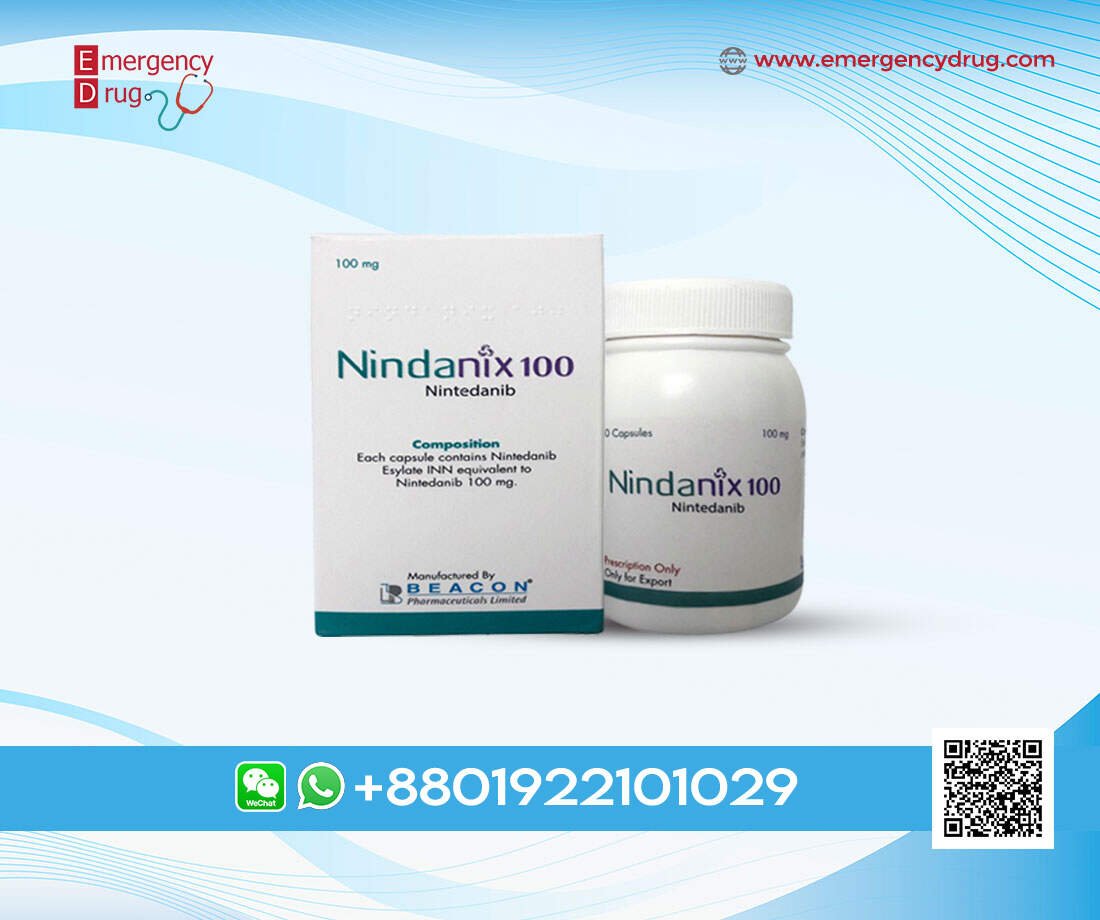
Regonix (Regorafenib) 40 MG – 28 Tablets
Price: $155.00
Product Feature:
| Manufacturer | : Beacon Pharma Ltd. |
| Indication | : Metastatic cancer |
| Strength | : 40 mg |
| Quantity | : 28 Tablets |
| Storage | : Below 30°C |
| Registrations | : Export Only |


Description
Regorafenib is a targeted therapy against certain proteins in cancer cells. It works by protecting the growth and proliferation of cancer cells in the body. Regonix 40 mg is useful in treating cases with metastatic colorectal cancers and gastrointestinal stromal tumors (GIST).
Indications
Regorafenib is a kinase inhibitor that indicate:
Metastatic colorectal cancer (CRC) after disease progression on or intolerance to fluoropyrimidine-based chemotherapy, anti-VEGF therapy and anti-EGFR therapy.
Unresectable or metastatic gastrointestinal stromal tumors (GIST) after disease progression on or intolerance to prior treatment with imatinib and Sunitinib.
Hepatocellular carcinoma (HCC) in patients who previously treat with sorafenib.
Pharmacology Regorafenib
Dosage & Administration Regorafenib
Metastatic colorectal cancer (CRC): 160 mg orally, once daily for the first 21 days of each 28-day cycle.
Gastrointestinal stromal tumors (GIST): 160 mg orally, once daily for the first 21 days of each 28-day cycle.
Hepatocellular carcinoma (HCC): 160 mg orally, once daily for the first 21 days of each 28-day cycle.
Interaction
CYP3A4 Inducers: Avoid concomitant use of strong CYP3A4 inducers with Regorafenib.
Side Effects
Pregnancy & Lactation
Precautions & Warnings
- Hemorrhage: Permanently discontinue regorafenib for severe or life-threatening hemorrhage.
- Dermatological toxicity: Interrupt and then reduce or discontinue regorafenib depending on severity and persistence of dermatologic toxicity.
- Hypertension: Temporarily or permanently discontinue regorafenib for severe or uncontrolled hypertension.
- Cardiac ischemia and infarction: Withhold regorafenib for new or acute cardiac ischemia/infarction and resume only after resolution of acute ischemic events.
- Reversible Posterior Leukoencephalopathy Syndrome (RPLS): Discontinue regorafenib.
- Gastrointestinal perforation or fistulae: Discontinue regorafenib.
- Wound healing complications: Stop regorafenib before surgery. Discontinue in patients with wound dehiscence.
- Embryofetal toxicity: Can cause fetal harm. Advise women of potential risk to a fetus.
Use in Special Populations
Pediatric Use: The safety and effectiveness of Regonix in pediatric patients less than 18 years have not been established.
Geriatric Use: No overall differences in safety or effectiveness were observed between adult subjects and younger subjects.
Hepatic Impairment: No clinically important differences in the mean exposure of regorafenib or the active metabolites M-2 and M-5 observe in patients with hepatocellular carcinoma and mild (Child-Pugh A) or moderate (Child-Pugh B) hepatic impairment compare to patients with normal hepatic function. No dose adjustment recommend in patients with mild or moderate hepatic impairment. Closely monitor patients with hepatic impairment for adverse reactions. Regonix is not recommended for use in patients with severe hepatic impairment (Child-Pugh Class C) as it has not been studied in this population.
Renal Impairment: No dose adjustment recommend for patients with mild renal impairment. Limited pharmacokinetic data are available from patients with moderate renal impairment (CLcr 30-59 mL/min/1.73m2). Regorafenib has not been studied in patients with severe renal impairment or end-stage renal disease.
Females and Males of Reproductive Potential: Contraception: Use effective contraception during treatment and up to 2 months after completion of therapy.
Infertility: There are no data on the effect of capsule on human fertility. Results from animal studies indicate that tablets can impair male and female fertility.
For any inquiries please contact us
For more medicine, visit our SHOP









Reviews
There are no reviews yet.